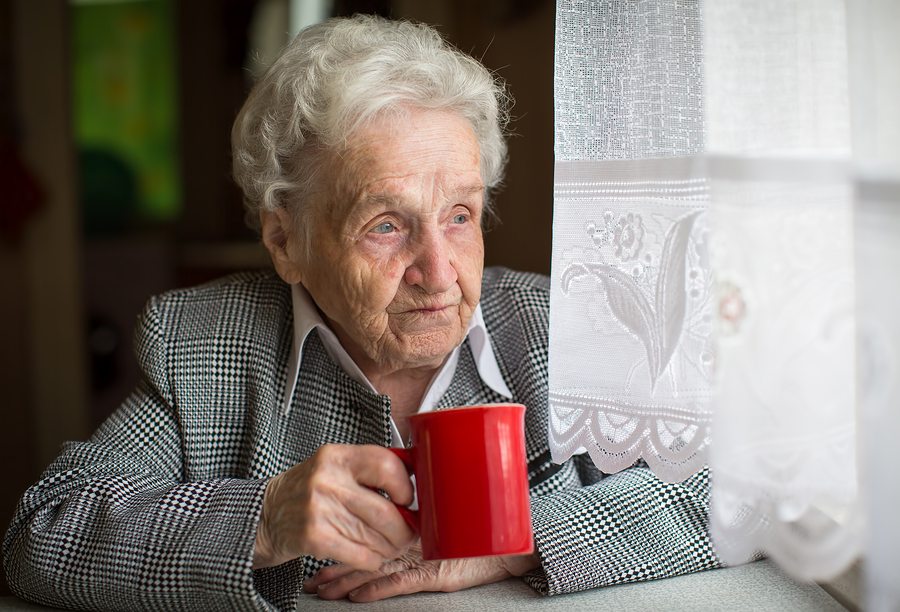Why Too Much Caffeine is Bad for Elderly Adults
Anne’s mother was struggling with multiple health problems but regular doctor’s visits and several different medications didn’t seem to be working to heal her as quickly as they should. She was experiencing insomnia, headaches and seemed irritable as well. As Anne was discussing the issues with her mother’s senior care assistant, he suggested they track her mother’s caffeine intake and see whether that might be contributing to her overall poor health.

Elderly Care in Herndon VA: Too Much Caffeine
Most seniors start their morning with a cup of coffee and consume caffeine regularly throughout the day. From tea and soda to chocolate and more, caffeine can easily be found in common foods and beverages. Consuming caffeine in moderation can provide elderly adults with a boost of energy, increase focus and several other health benefits.
When can it be too much?
However, studies show that too much caffeine can be harmful to the body and increase the risks of certain conditions in elderly adults. Ignoring the risks associated with caffeine can negatively affect their health. That’s why it’s important for family caregivers and their aging loved ones to seriously consider how much caffeine they have each day and how too much of a good thing can end up being so bad for them.
What is caffeine?
Caffeine is a stimulant that works on the nervous system. The same chemical reaction that helps people feel more energetic with moderate caffeine intake can turn to jitteriness, irritability, headaches and muscle spasms with overconsumption. Insomnia can also be triggered or worsened by too much caffeine, especially close to bedtime. Because it is a diuretic, which means it stimulates urine production in the body, it can also cause seniors to quickly become dehydrated. Because the elderly are often at risk for dehydration due to changes related to aging, this can become serious.
For elderly adults that have certain chronic conditions, caffeine can enhance the symptoms or cause more irritation.
Examples of these health issues include:
-ulcers,- -gastritis-
-high blood pressure- -osteoporosis –
-migraines- -diabetes –
-and fluctuations in the parasympathetic nervous system-
Sometimes, caffeine can even interfere with certain medications that elderly people might be taking, reducing the effectiveness. Caffeine addiction is another serious side effect that is possible in elderly people that consume high amounts of the stimulant.
Because seniors are far more susceptible to the harmful effects of caffeine, it’s important that family caregivers consult with doctors about how much, if any, is appropriate for their elderly relative. Doctors, dieticians, and senior care aides can provide guidance on how to reduce caffeine intake in seniors and keep consumption to appropriate levels. Medical experts agree that up to 400 milligrams of caffeine a day is just fine for average seniors. Doctors can help each individual patient determine the right levels for them.
How can you help?
After Anne and the senior care aide spent a week tracking her mother’s caffeine intake, they discovered that it averaged around 700 milligrams per day, between several cups of coffee, soda, and miscellaneous foods. Between them, they were able to include some caffeine-free alternatives throughout the week. Although the caffeine withdrawal her mother endured was difficult for her, eventually her body grew used to a reduced level of the substance. Anne also imposed a no-caffeine rule several hours before bed for her mother. It only took a few weeks for Anne’s mother to start feeling better and having a good night’s sleep again.
Are you or a loved-one considering hiring elderly care in Herndon, VA? Please call the caring staff at Medical Professionals On Call today.
Contact: 703-273-8818
Source:
https://www.health.harvard.edu/blog/the-latest-scoop-on-the-health-benefits-of-coffee-2017092512429
https://www.healthline.com/nutrition/what-is-caffeine
- Do Your Parents Face More Challenges When They Live in a Rural Community? - November 6, 2019
- Ways to Ease Arthritis Symptoms in the Elderly - October 24, 2019
- Tips for a Better Life with Fibromyalgia - October 9, 2019
